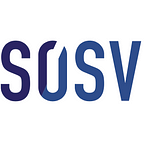Go Node-Free: Can we Develop and Deploy Blockchain Apps without running a Node?
Introducing Khoa Phan’s dLab/Emurgo Fellowship Project
[This article was originally posted by Khoa Phan via dLab, SOSV’s blockchain accelerator in NYC.]
My name is Khoa Phan and I’m a startup founder, full-stack software developer, and a dLab Fellow. Also, I’m a recent New York City transplant!
Prior to my fellowship, I founded a SOSV-backed hardware startup to address the dire problems of back pain and back injuries; we built a smart device to physically reinforce the wearer’s correct posture and notify them whenever they slouched. During the first six months as the startup’s solo team member, I bootstrapped the company by architecting and developing the hardware and software product MVP and crafted a Kickstarter campaign which resulted in $467,833 worth of product pre-orders in ~30 days.
Over the next year, my mission is to apply the product, development, and marketing skills I’ve cultivated as an entrepreneur towards making it easy and enjoyable for developers to build on the Cardano platform.
What Am I Working On?
Developing, testing, and deploying live applications to a blockchain is currently a very arduous process for most developers and a significant obstacle to widespread developer adoption. One of the most painful parts of this process is that application interaction and smart contract deployment requires a developer to have access to a working full node.
Currently, to fulfill this prerequisite for most blockchain platforms, developers have to complete a laundry list of actions; one of which is the configuration of a development environment suitable for the full node’s build operations. Afterward, assuming the build process completes without any issues (far from a guarantee), the developer would then have to ensure that the full node is continuously synced with the network and operational if they want to maintain access; a task which can be a serious challenge for anyone without production sysadmin experience (and even then, there’s no avoiding the necessary expenditure of time and energy monitoring and maintaining node uptime).
Having identified this as an urgent problem that needs a swift resolution, my goal with this fellowship is to help developers easily build and support blockchain-enabled apps for the Cardano ecosystem by doing much of the hard work for them. Alongside Eko Mirhard, another dLab Fellow, I’ll be providing a commercial full node service, Soshen (phonetic spelling of “transmission” in Japanese), which will consist of three core components:
- An intuitive developer dashboard for separating application concerns and their blockchain access
- A well-documented, robust API which is easy to use, with educational materials and tutorials for developer onboarding
- A managed full node infrastructure and accompanying business model to facilitate stable interaction with the Cardano blockchain
To ensure service integrity and dependability, each component will be architected with security, stability, and scalability at the forefront of our minds, and developed with adherence to software development best practices. We’ll be sharing the more granular details of our offerings over the coming months in separate blog posts.
Why Is This Important?
If we’re going to make a real-world impact with blockchain technologies any time soon, we’ll need many more developers using them to build real world applications. But, that’s not going to happen if we don’t focus our attention on making their development environment and workflow more user-friendly, productive, and enjoyable.
Think these developers are spoiled or lazy? Finding it hard to relate? Imagine the arduous process someone had to go through to set up a blog, an e-commerce store or a personal website 5–10 years ago: they had to purchase a domain, rent and configure a server for web hosting, install software, and much more. Nowadays, anyone can go to Medium, Shopify, or Squarespace, click a few buttons, fill out a few forms, and they’d be able to have all three set up and live on the Web in less than an hour.
Our goal is to provide the same efficiency and convenience for developers when it comes to full node access for their applications.
Instead of spending hours every month setting up and/or maintaining their full node(s), they will be able to accomplish the same in minutes with our service, Soshen. By abstracting away low-level tasks with solutions like ours, developers will have more time and energy to focus on what really matters to them and their users.
I would like to sincerely thank Emurgo and SOSV for this phenomenal opportunity, all the individuals here ( 1, 2, 3, 4, 5, and 6 — sorry, if I missed anyone) for making dLab possible (and great), and Infura for leading the way with all of the exceptional services they’ve provided to the blockchain software development community.
Keep up with the SOSV community. Subscribe to the Newsletter, and link up on Facebook, LinkedIn, and Twitter!
Originally published at https://medium.com on February 22, 2019.
